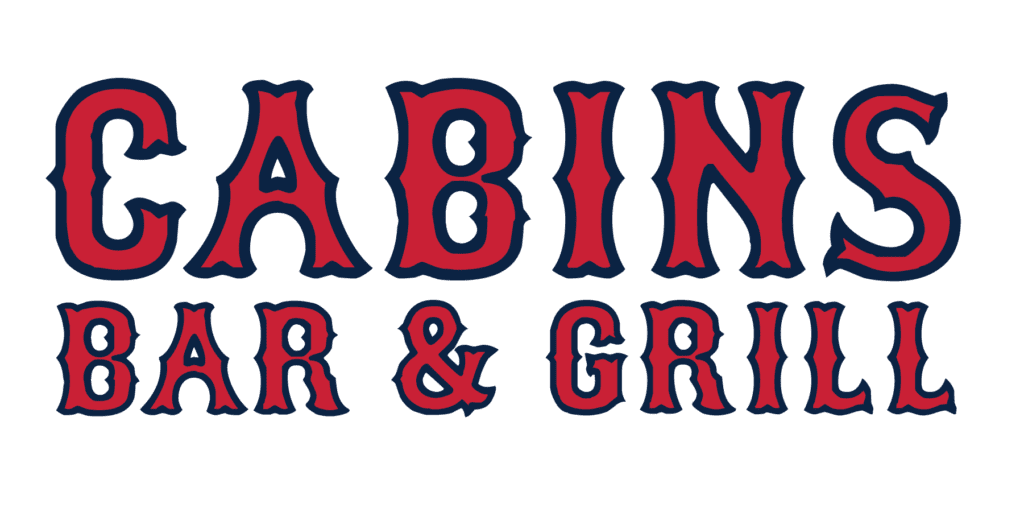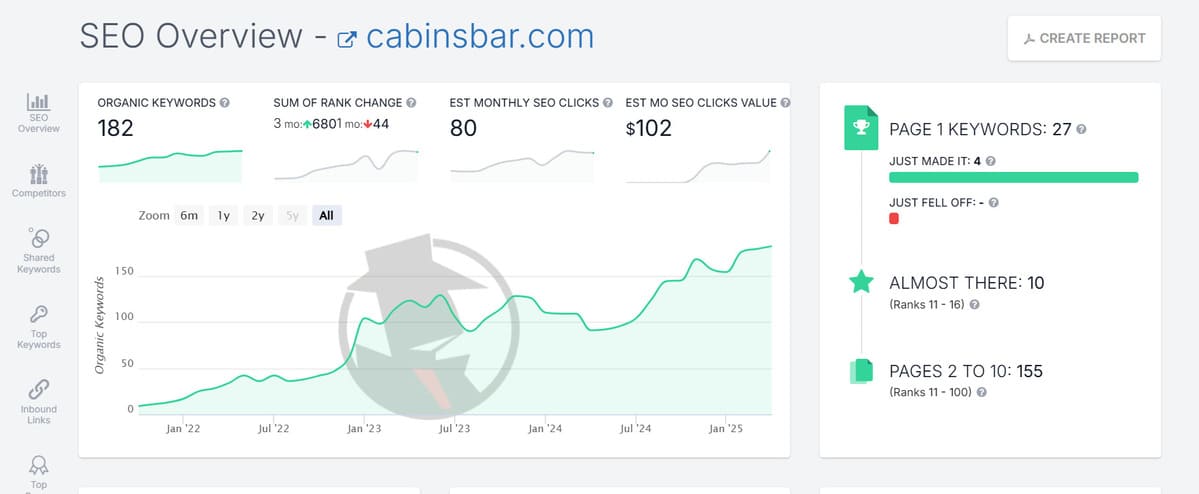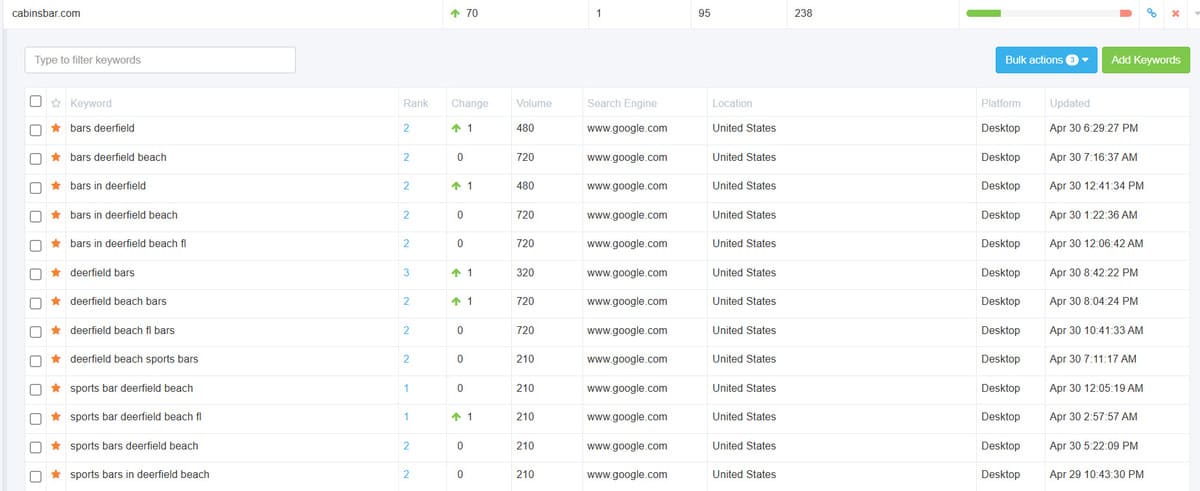The Transformation of The Cabin to Cabins Bar & Grill
The Challenge
The Plan
Stabilization (Months 1-6)
- Cost Control: Renegotiating with suppliers, strict control of food and beverage purchases, implementing a budget and monthly financial review.
- Menu Restructuring: Market research to identify popular dishes, simplifying the menu, introducing seasonal specials.
- Staff Training and Retention: Training in customer service and food preparation, recognition and reward system, defining a career path.
- Improving the Environment: Minor renovations to the physical space, updating decor and table settings.
Growth and Improvement (Months 7-24)
- Marketing and Promotion: Social media campaigns, partnerships with influencers, loyalty programs, and special events.
- Menu Innovation: Collaboration with a local chef, creating signature cocktails, using local and sustainable ingredients.
- Improving the Customer Experience: Online booking system, more comfortable seating, personalized service training.
- Community Engagement: Sponsoring local events, hosting events at the restaurant.
Sustainable Success (Months 25-36)
- Operational Excellence: Implementing advanced management systems, continuous training, gathering customer feedback.
- Business Expansion: Catering and delivery services, creating branded products, analyzing franchising possibilities.
- Financial Health: Cost control, building financial reserves, regular financial performance review.
- Brand Strengthening: Positioning as a local reference, using customer testimonials, fostering a culture of excellence.
Positioning & Sale (Months 37- 48)
- Positioning & Sale maximize valuation, reduce buyer risk, and make the business easy to transfer.
- De-Risking & Documentation Goal: Make the business easy to buy and easy to run day to day.
- Month Exit Plan: You’re not selling a bar you’re selling predictable cash flow with alcohol attached.
- Goal: Sell at the highest multiple possible to the best qualified buyer for continued success.
The importance of a Custom Logo
A logo is crucial for a restaurant for several reasons:
First Impression: A logo is often the first interaction a potential customer has with a restaurant. A well-designed logo can immediately convey the restaurant’s style, cuisine, and quality, creating a positive first impression.
Brand Identity: A logo serves as the visual cornerstone of a restaurant’s brand identity. It helps to establish the restaurant’s personality, values, and what makes it unique. Consistent use of the logo across menus, signage, advertising, and social media reinforces this identity.
Memorability: A strong logo helps customers remember your restaurant. When they see the logo, they associate it with their dining experience, whether it’s the taste of the food, the ambiance, or the service. This association can encourage repeat business.
Differentiation: In a competitive market, a distinctive logo helps a restaurant stand out from its competitors. It visually differentiates the restaurant from others, making it easier for customers to choose your restaurant over another.
Professionalism and Trust: A professionally designed logo can convey a sense of professionalism and reliability. It can signal to customers that the restaurant is established, trustworthy, and serious about its business, which can influence their dining decisions.
Marketing and Promotion: A logo is a key element in marketing and promotional efforts. Whether it’s on social media, in print ads, or on merchandise, the logo helps to build brand recognition and loyalty.
Emotional Connection: Over time, a logo can evoke emotions and memories in customers, fostering a connection with the restaurant. This emotional bond can lead to a loyal customer base that feels personally connected to the brand.
In summary, a logo is not just a visual symbol; it’s a powerful tool that helps define and communicate a restaurant’s brand, attract and retain customers, and differentiate it in a crowded marketplace.

The Importance of a matching domain address to the DBA Doing Business As.
Having a website domain address that matches the name of your business is important for several key reasons:
Brand Consistency: A domain name that matches your business name reinforces your brand identity. It creates a cohesive image across all platforms, making it easier for customers to recognize and remember your brand.
Customer Trust and Credibility: A matching domain name adds professionalism and legitimacy to your business. Customers are more likely to trust a website that aligns with the business name, as it feels more official and established.
Ease of Discovery: When customers search for your business online, they often use your business name. If your domain name matches your business name, it’s easier for customers to find your website, reducing the risk of them ending up on the wrong site or getting frustrated.
Search Engine Optimization (SEO): A matching domain name can improve your website’s search engine rankings. When your domain name reflects your business name, it helps search engines like Google understand the relevance of your website to user queries, potentially leading to better visibility in search results.
Avoiding Confusion: If your domain name doesn’t match your business name, it can confuse customers. They might wonder if they’re on the correct site, or they may have trouble recalling how to find you online. This mismatch can lead to lost traffic and potential customers.
Legal Protection: Securing a domain name that matches your business name can also provide some legal protection. It prevents other entities from registering a similar domain name that could mislead your customers or damage your brand reputation.
Marketing and Promotion: A matching domain name is easier to promote in marketing materials, both online and offline. It’s simpler to include in advertisements, business cards, and social media profiles, making it more effective in driving traffic to your website.
In summary, a domain name that matches your business name is crucial for maintaining brand consistency, building trust, improving discoverability, and ensuring a smooth and professional experience for your customers.
The Importance of going from No Website to a Ranking Optimized WordPress Website
Yes, having a website is highly beneficial if you own a Bar & Grill, even if your business is primarily local and relies heavily on foot traffic. Here are several reasons why a website is important for your Bar & Grill:
- Online Presence and Visibility: A website allows your Bar & Grill to be found online. Many customers search for places to eat or drink using the internet, whether on search engines or maps. Having a website increases the likelihood that potential customers will find your business when they’re looking for a place to go.
- Information Hub: Your website serves as a central location where customers can find essential information such as your menu, operating hours, location, and contact details. It can also showcase any special events, promotions, or unique features of your Bar & Grill, helping to attract more patrons.
- Customer Convenience: Many customers prefer to check out a restaurant’s offerings online before deciding to visit. A website allows them to view your menu, learn about the atmosphere, and even make reservations if you offer that service. This convenience can lead to more foot traffic and reservations.
- Branding and Storytelling: Your website is an excellent platform to tell the story of your Bar & Grill. You can share the inspiration behind your business, introduce your staff, highlight your signature dishes, and showcase your ambiance through photos and videos. This helps build a connection with customers before they even walk in the door.
- Marketing and Promotions: A website is a powerful tool for marketing your Bar & Grill. You can use it to run promotions, offer discounts, or advertise special events like live music or trivia nights. It also integrates well with social media, where you can direct followers to your website for more details.
- Online Reviews and Testimonials: Your website can feature positive reviews and testimonials from customers, which can influence potential visitors to choose your Bar & Grill over competitors. It also allows you to manage your reputation by highlighting the best aspects of your business.
- Search Engine Optimization (SEO): With a well-optimized website, your Bar & Grill can rank higher in local search results, making it more likely that people searching for a place to eat or drink in your area will find you.
- Reservation and Ordering Systems: If you offer reservations or takeout, your website can facilitate these processes. Online reservations or ordering systems make it easier for customers to engage with your business, increasing convenience and customer satisfaction.
- Competitive Edge: Many of your competitors likely have websites. Not having one could put you at a disadvantage, as potential customers might opt for a competitor’s Bar & Grill simply because they could find more information online.
In summary, while it might be possible to operate a Bar & Grill without a website, having one can significantly enhance your business's visibility, customer engagement, and overall success in a competitive market.
Conclusion



